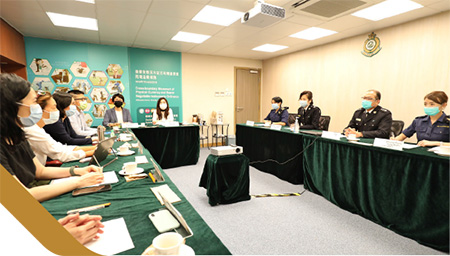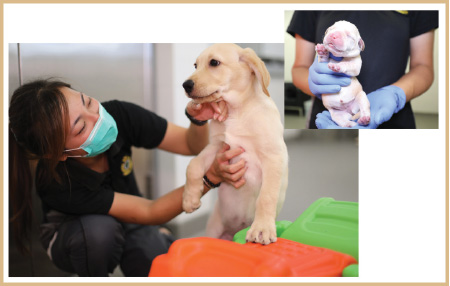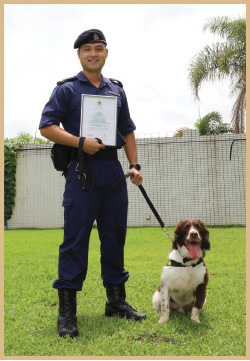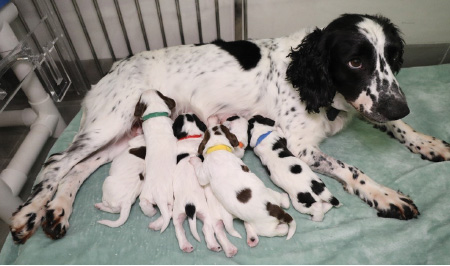

Striving ahead with technology to bring quality public housing
Tremendous breakthrough for Customs Canine Force
Queue-free Smart Renewal service for further employment of foreign domestic helpers


Customs and Excise Department

In addition to the unprecedented success of the canine self-breeding programme of the Customs and Excise Department (C&ED) in 2020, C&ED also obtained accreditation approval from the Hong Kong Council for Accreditation of Academic and Vocational Qualifications (HKCAAVQ) on 1 January 2021 to include its Drugs Detector Dog Handling Programme in the Qualifications Register (QR). Moreover, C&ED also cooperated with the Fire Services Department (FSD) for the first time on a joint canine breeding programme and saw the auspicious birth of six healthy Springer Spaniels on 12 February 2021—the first day of the Chinese New Year. To further safeguard national security and enhance its ability to intercept illegally imported firearms and ammunitions, C&ED also commenced firearms detector dog training in June 2021.
Domestic dog breeding has long been CCF’s direction to help secure a steady canine pipeline for operational needs. With overseas training and canine purchases suspended due to COVID-19, CCF has become even more determined to open up a new pathway in canine breeding. To help achieve this, a new dedicated breeding centre was established in February 2020 by CCF at the Hong Kong-Zhuhai-Macao-Bridge Dog Base (HZMB Base). After months of preparation, the first batch of six Labradors, bred entirely within the Department, was born in July 2020. This marks the first local breeding success achieved in the history of C&ED since the first detector dog was introduced in 1975.

In January 2021, the training programme “Professional Diploma in Drugs Detector Dog Handling” operated by CCF was accredited at Hong Kong Qualifications Framework (HKQF) Level 4. Pitched at a level equivalent to a local Associate Degree or a Higher Diploma, the accredited programme makes C&ED the first law enforcement agency in Hong Kong to offer a QF-recognised programme in dog handling. Comprising a 10-week training course, the programme equips trainees with detector dog handling skills across a broad range of enforcement areas, such as knowledge on canine health, drug concealment methods and search techniques. The programme aims to ensure the professional standards of dog handlers when performing anti-narcotics duties. The first batch of trainees, who graduated from the accredited programme in February 2021, have been deployed to perform duties at different operational fronts. Their mission is to lead their detector dogs to perform Customs clearance duties and step up anti-drug trafficking enforcement.



Springer Spaniels were chosen as breed dogs in the first-ever breeding cooperation between C&ED and FSD, given their lively character and high vigilance in detection. As a result, Jack, a search and rescue dog from FSD, and Casa, a Customs’ drugs detector dog were successfully mated resulting in a litter of six puppies at the breeding centre of CCF at HZMB Base on 12 February 2021—the first day of the Lunar New Year.
Two of the puppies will be raised by FSD, and C&ED will bring up the remaining four. They will all start to receive formal training at the age of one. To cope with the enforcement needs of C&ED, the four puppies at C&ED will be trained up by CCF to detect different contrabands like explosives, firearms and ammunitions.
With all these milestones achieved, a solid foundation has been laid for CCF to move forward and sustain its development in two directions: diversification and professionalisation. CCF will strive to develop the dogs’ detection abilities and further strengthen the frontline enforcement capacity of C&ED. They will also continue to upkeep the performance of both the dog handlers and their working dogs through high-quality training—upholding C&ED’s commitment and excellence when serving the community.